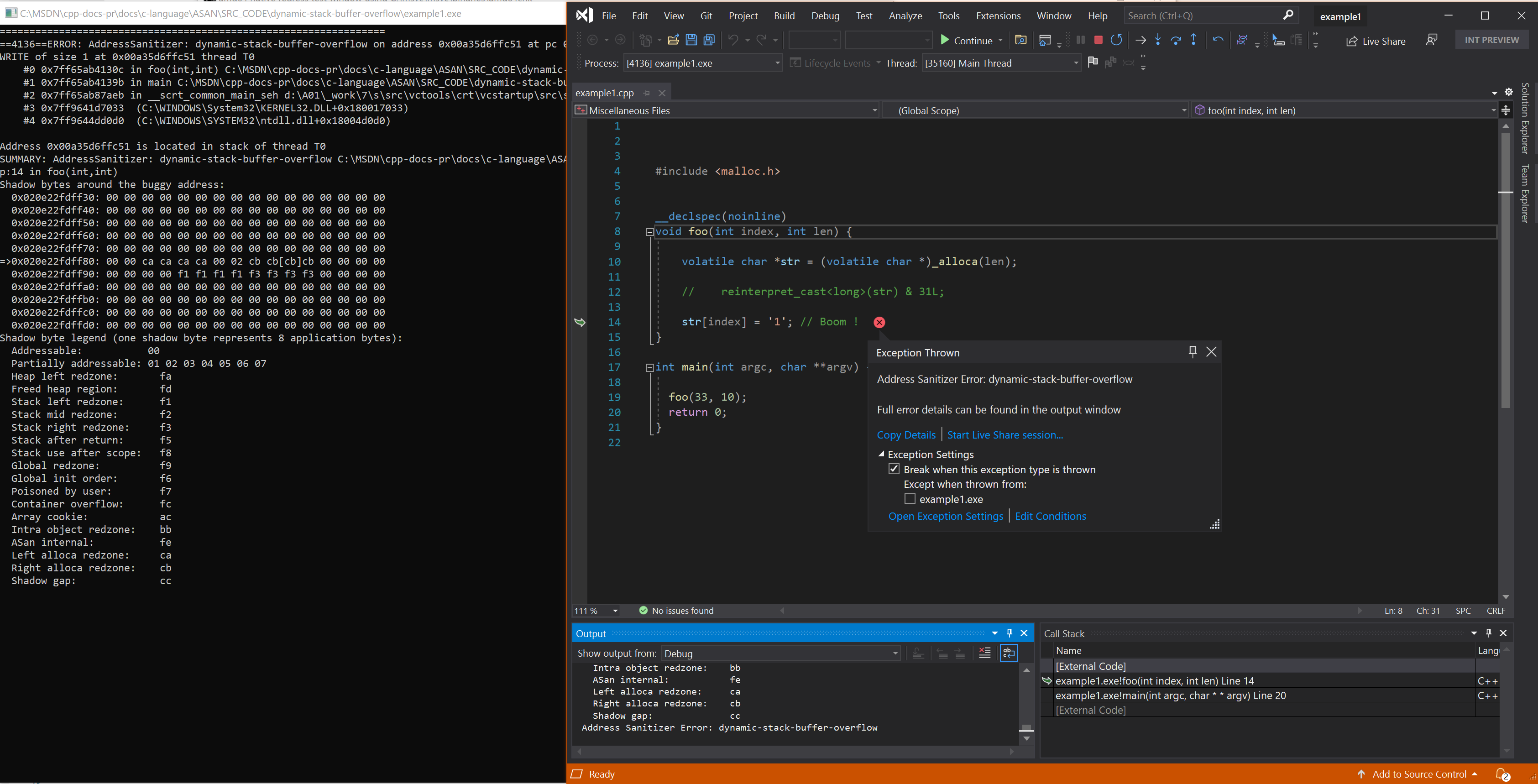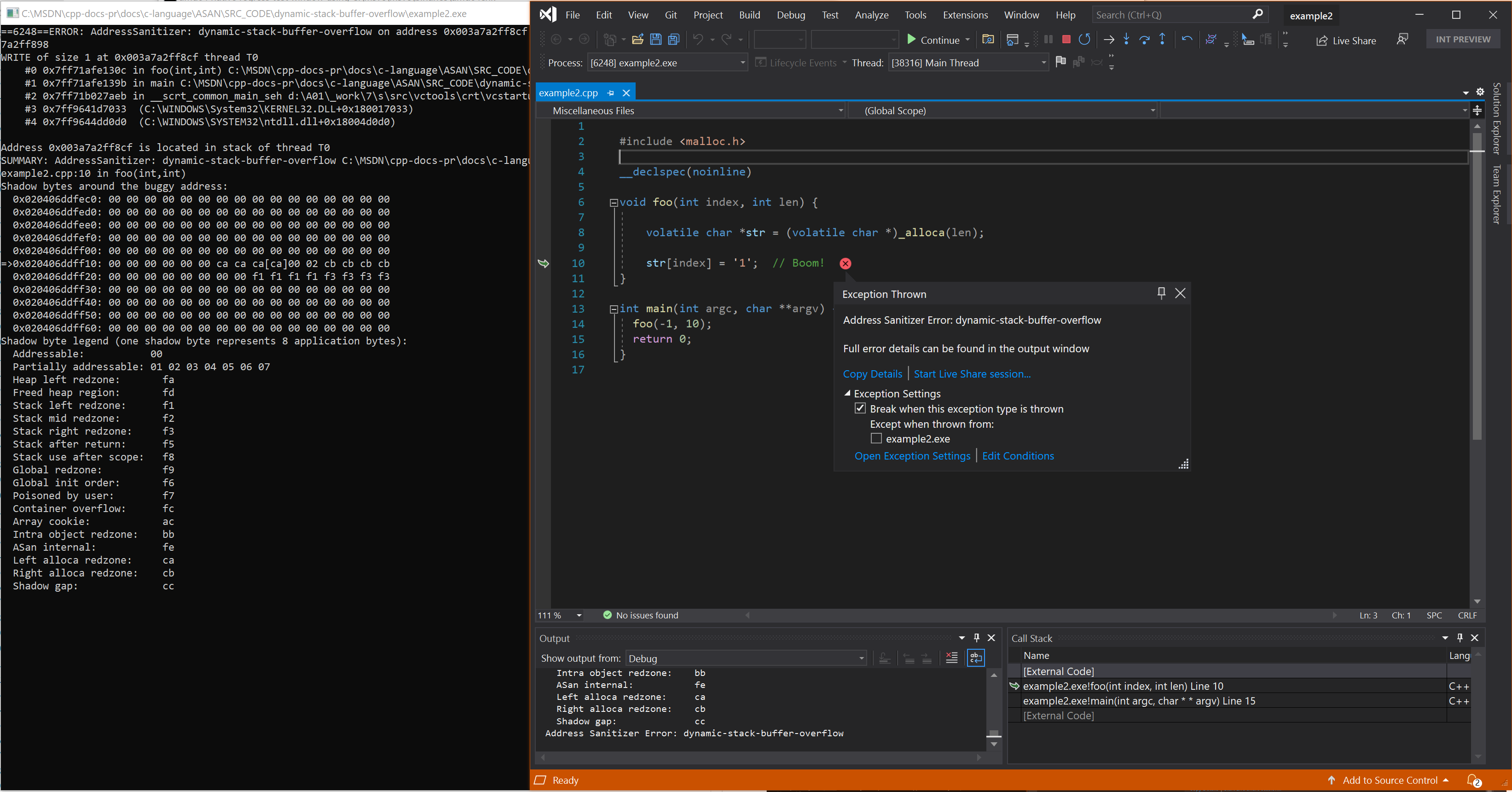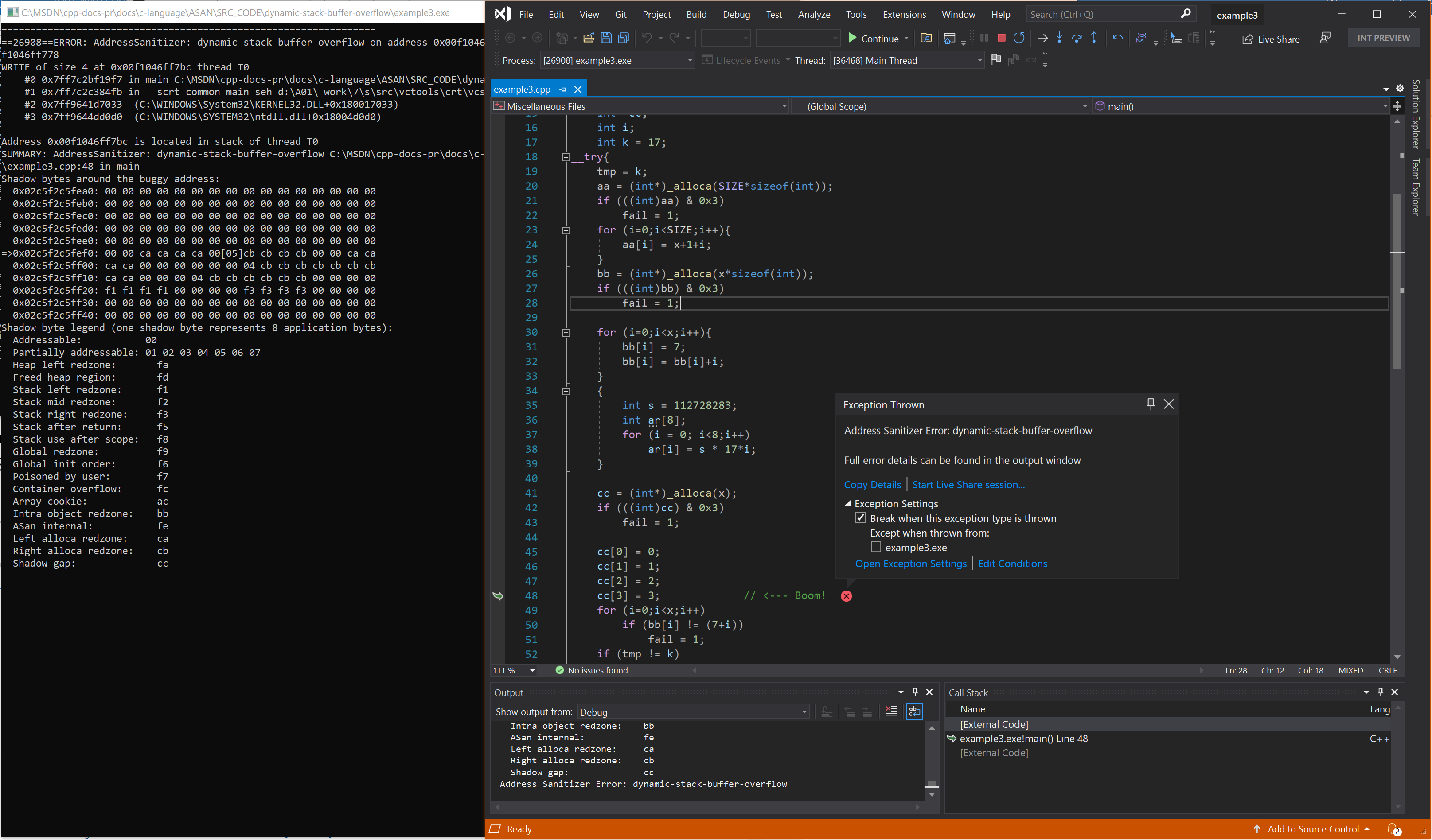오류: dynamic-stack-buffer-overflow
삭제자 오류 해결: dynamic-stack-buffer-overflow
이 예제에서는 스택 할당 개체의 범위를 벗어난 버퍼 액세스에서 발생하는 오류를 보여 줍니다.
예 - alloca 오버플로(오른쪽)
// example1.cpp
// dynamic-stack-buffer-overflow error
#include <malloc.h>
__declspec(noinline)
void foo(int index, int len) {
volatile char *str = (volatile char *)_alloca(len);
// reinterpret_cast<long>(str) & 31L;
str[index] = '1'; // Boom !
}
int main(int argc, char **argv) {
foo(33, 10);
return 0;
}
이 예제를 빌드하고 테스트하려면 Visual Studio 2019 버전 16.9 이상 개발자 명령 프롬프트에서 다음 명령을 실행합니다.
cl example1.cpp /fsanitize=address /Zi
devenv /debugexe example1.exe
결과 오류

예 - alloca 오버플로(왼쪽)
// example2.cpp
// dynamic-stack-buffer-overflow error
#include <malloc.h>
__declspec(noinline)
void foo(int index, int len) {
volatile char *str = (volatile char *)_alloca(len);
str[index] = '1'; // Boom!
}
int main(int argc, char **argv) {
foo(-1, 10);
return 0;
}
이 예제를 빌드하고 테스트하려면 Visual Studio 2019 버전 16.9 이상 개발자 명령 프롬프트에서 다음 명령을 실행합니다.
cl example2.cpp /fsanitize=address /Zi
devenv /debugexe example2.exe
결과 오류 - alloca 오버플로(왼쪽)

예제 - 여러 호출 alloca
// example3.cpp
// dynamic-stack-buffer-overflow error
#include <stdio.h>
#include <stdlib.h>
#include <malloc.h>
#define SIZE 7
extern void nothing();
int x=13,*aa,*bb,y=0;
int fail = 0;
int tmp;
int main()
{
int* cc;
int i;
int k = 17;
__try {
tmp = k;
aa = (int*)_alloca(SIZE * sizeof(int));
if (((int)aa) & 0x3)
fail = 1;
for (i = 0; i < SIZE; i++) {
aa[i] = x + 1 + i;
}
bb = (int*)_alloca(x * sizeof(int));
if (((int)bb) & 0x3)
fail = 1;
for (i = 0; i < x; i++) {
bb[i] = 7;
bb[i] = bb[i] + i;
}
{
int s = 112728283;
int ar[8];
for (i = 0; i < 8; i++)
ar[i] = s * 17 * i;
}
cc = (int*)_alloca(x);
if (((int)cc) & 0x3)
fail = 1;
cc[0] = 0;
cc[1] = 1;
cc[2] = 2;
cc[3] = 3; // <--- Boom!
for (i = 0; i < x; i++)
if (bb[i] != (7 + i))
fail = 1;
if (tmp != k)
fail = 1;
if (fail) {
printf("fail\n");
exit(7);
}
printf("%d\n", (*cc) / y);
printf("fail\n");
exit(7);
}
__except (1)
{
for (i = 0; i < SIZE; i++)
if (aa[i] != (x + i + 1))
fail = 1;
if (fail) {
printf("fail\n");
exit(7);
}
printf("pass\n");
exit(0);
}
}
이 예제를 빌드하고 테스트하려면 Visual Studio 2019 버전 16.9 이상 개발자 명령 프롬프트에서 다음 명령을 실행합니다.
cl example3.cpp /fsanitize=address /Zi
devenv /debugexe example3.exe
결과 오류 - alloca에 대한 여러 호출

참고 항목
AddressSanitizer 개요
AddressSanitizer 알려진 문제
AddressSanitizer 빌드 및 언어 참조
AddressSanitizer 런타임 참조
AddressSanitizer 섀도 바이트
AddressSanitizer 클라우드 또는 분산 테스트
AddressSanitizer 디버거 통합
AddressSanitizer 오류 예제